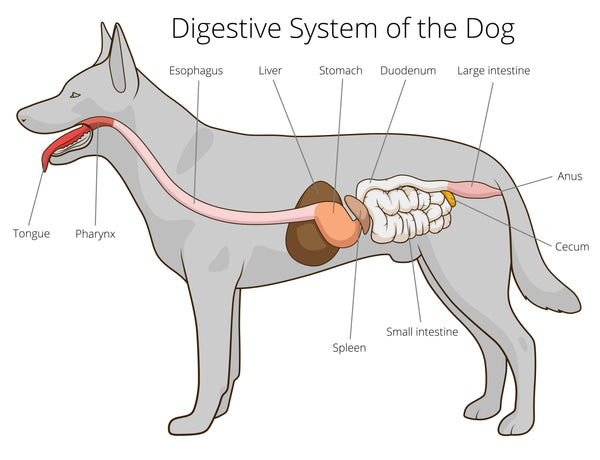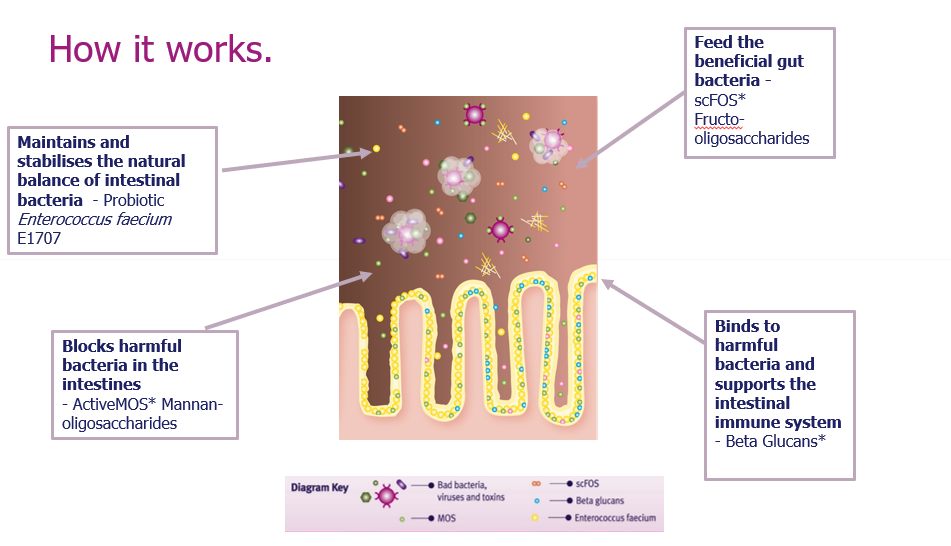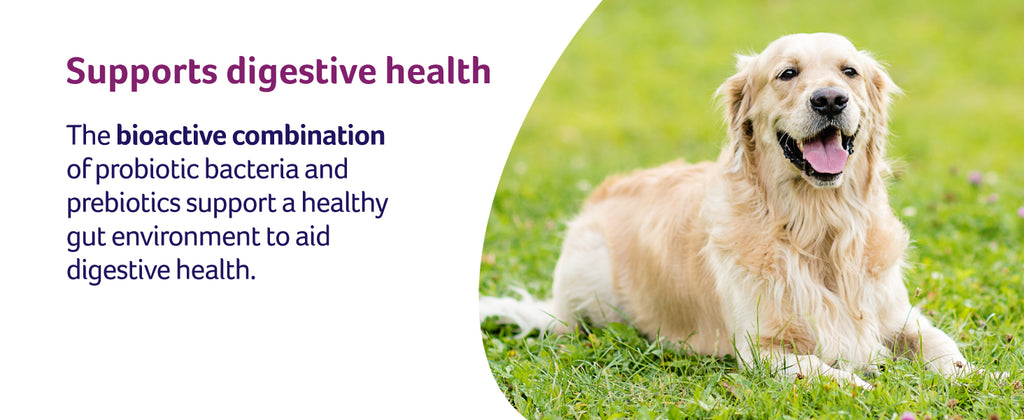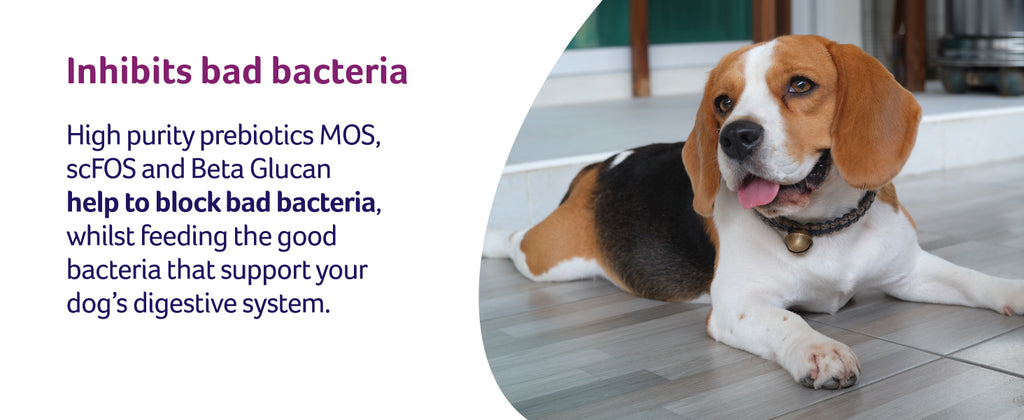
Probiotics for dogs
Dog probiotics – what are they, and how can they help?
If your dog has delicate digestion, it’s likely that you’ve been on the look-out for ways to soothe their sensitive tummy. Maybe you’ve tried special diets, pet foods, or visited your vet? But did you know that dog probiotics can play a role too? So what are probiotics, and how can they support your dog’s digestive system?
Every animal – be it dog, cat, human or elephant! – has a whole host of friendly microbes living in their gut and digestive tract. At birth, these bacteria are in perfect balance and do an amazing job of digesting food, fighting off pathogens, making nutrients and vitamins, slowing down cells that are growing out of control, and boosting the immune system.

But as your dog (or cat or elephant) grows, life can knock the clever system at work in the gut, off-balance. This can be caused by things like:
- Medications – including antibiotics and long-term steroids
- Infections and parasites
- Stress – moving home, boarding at kennels, changes to the pack
- Diet – intolerances, menu changes or scavenging things they shouldn’t
- Old age
- And that’s where probiotics come in. So let’s take a closer look at what dog probiotics actually are, and how they help.
What are probiotics for dogs?
Ever eaten a live yoghurt or drank goats milk? That’s a probiotic. But when we talk about dog probiotics, we mean live microorganisms which – when given in the right amount – result in a health benefit on the host. There are hundreds of different species and probiotic strains of good bacteria in the gut, but the probiotic Enterococcus faecium E1707 is the EU-registered strain that’s best for dogs and cats. This is the probiotic found in our YuDIGEST range of dog probiotics.

How can I tell if my dog needs probiotics?
The most obvious signs to watch out for are runny poos and lots of wind. However, there are some less obvious things to watch out for too. Lack of appetite, a dull coat and poor overall health can also be signs that their digestion isn’t in tip-top health.
How do probiotics for dogs actually work?

Probiotics are the ‘fighters’ – they contain beneficial bacteria that work to eradicate ‘bad’ bacteria.
Prebiotics are the ‘support team’ – they’re made with substances helpful for microbial growth in the gut. They don’t get digested, they just promote healthy bacterial growth. A mixture of prebiotics and probiotics is known as a symbiotic – they work together to help get your dog’s tummy back on track.

Did you know?
Every YuDIGEST for Dogs tablet contains 200million microorganisms, while every sachet of YuDIGEST Plus for Dogs is packed with over 1 billion!
6 must-know facts about dog probiotics
- Probiotic bacteria live right throughout your dog’s body – not just in their gut.
- Probiotics produce natural antibiotics to help fight ‘bad’ bacteria!. Dog probiotics produce vitamins A, B and K.
- Dogs (and people for that matter) have 11 x more probiotics in their bodies than bone, blood and tissue cells.
- A puppy’s gut flora is perfect in their first few months of life – but can be disturbed by diet, environmental stressors and medicines. That’s when supplements can help get things balanced again.
- You should never give a dog human probiotics – they won’t work, and can actually make your dog sick, instead, you should use a supplement for dogs.
- The word probiotic comes from a mix of Latin and Greek. It combines the Latin word “for” (pro) and the Greek “life” (bio).

How do I use dog probiotics?
There are two different ways to use dog probiotics. You can use a daily supplement like YuDIGEST Dog to support digestive health, keep stools firm and increase ‘good’ bacteria in the gut. This approach is ideal for dogs who’re prone to digestive challenges.
But what if your dog has, ahem, a very sensitive tummy? Try a veterinary strength complex of gut-supporting probiotics and prebiotics like YuDIGEST Plus for Dogs. This supplement quickly restores the balance of your dog’s gut. It gets to work topping up good bacteria, binding bacteria and toxins, and helping your pet get back to normal, fast - and if you need to, you can even use it long term.
Have you tried dog probiotics? Did they help? Say hello on our Facebook page. If you’re interested in trying a dog probiotic for the first time, why not take a closer look at the YuDIGEST range.





